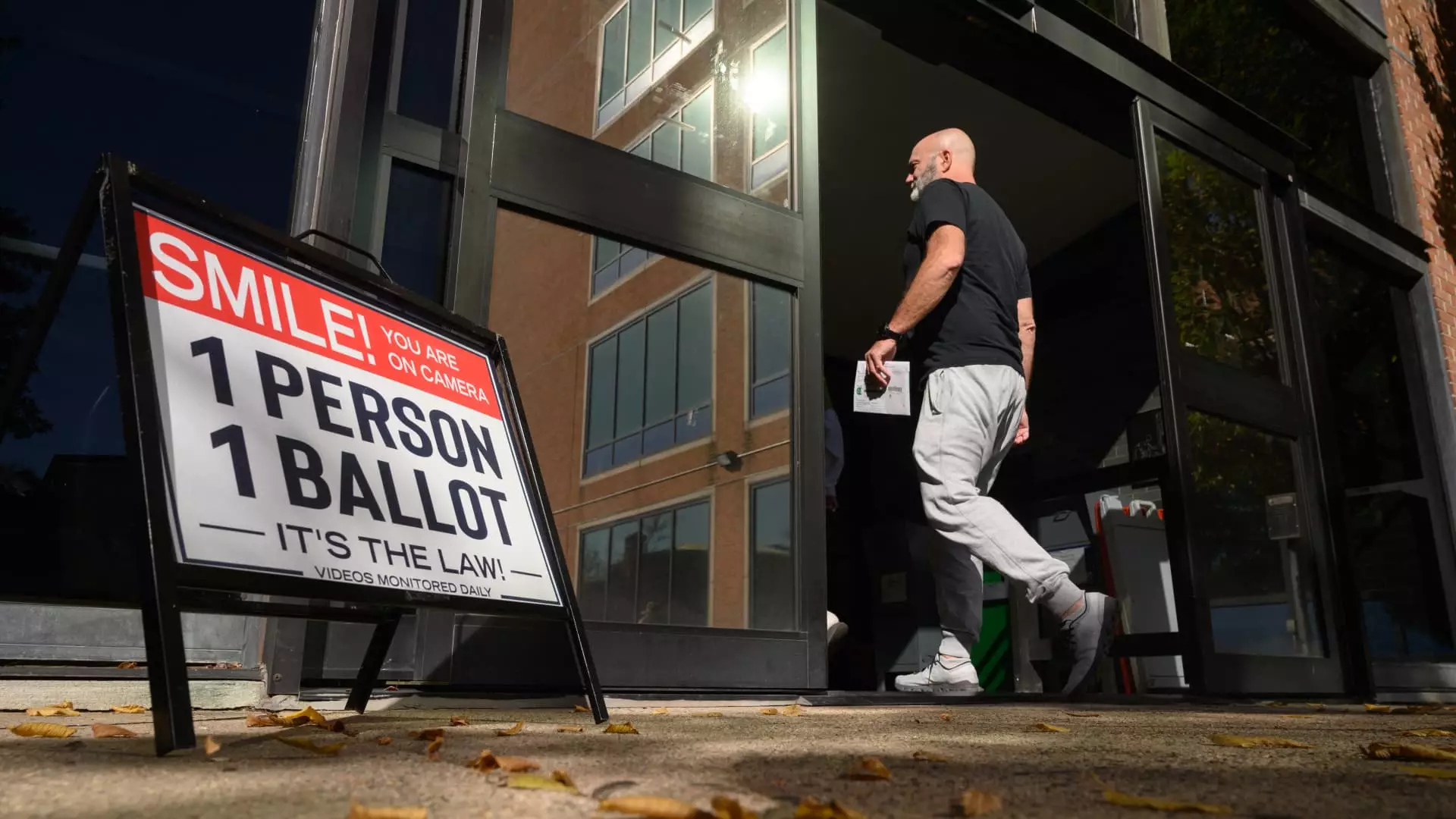In a significant decision that shapes the legal landscape of voting protocols, the Supreme Court rejected a Republican-led initiative to contest a Pennsylvania ruling allowing voters to cast provisional ballots if their mail-in votes were deemed defectively submitted. This ruling demonstrates a pivotal moment concerning voting rights, election law, and interpretations surrounding procedural integrity. The implications of this decision extend beyond a mere electoral process; they resonate deeply with issues regarding accessibility, the safeguarding of individual voting rights, and the continued debates surrounding election legitimacy in a politically charged environment.
The case emanates from a specific instance during the recent Democratic primary in Butler County, Pennsylvania, where voters Faith Genser and Frank Matis submitted mail-in ballots that failed to comply with the necessary regulations—specifically, lacking the required secrecy envelopes. When notified of the ineligibility of their initial submissions, both individuals opted to cast provisional ballots, prompting a deeper examination into whether such compensatory measures infringe upon the existing election laws.
The Republican National Committee contested the Pennsylvania Supreme Court’s ruling that allowed voters like Genser and Matis to rectify their ballot issues through provisional submissions. Their assertion argued that the Pennsylvania legislative framework mandates the rejection of any ballots not meeting predefined conditions, fostering a stringent interpretation of what constitutes a valid vote. This stringent stance raises pressing questions about the balance between strict adherence to regulations and ensuring voter access, particularly in critical swing states known for their electoral volatility.
Justice Samuel Alito, a noted conservative voice on the court, articulated a reluctance to engage in the controversy at this juncture, labeling the matter as one of “considerable importance.” He was joined by Justices Clarence Thomas and Neil Gorsuch in this brief, indicating perhaps an underlying complexity that the court was unwilling to navigate at this time. The broader implications of such decisions point to a potential fracturing within conservative ideologies regarding electoral laws.
Alito’s admission that the relevant legal disputes could still resurface illustrates the court’s cautious approach. This reticence reflects not just an unwillingness to intervene at this moment, but also hints at potential future deliberations that may reshape the parameters around how ballots are managed, including the right for voters to amend their submissions in real-time. However, the court’s hesitance also raises concerns about the legitimacy of voter experiences and the continuing risk of disenfranchisement when procedural regulations are stringently applied without consideration of mitigating circumstances.
The legal fracas embroiling the Pennsylvania elections serves as a microcosm of a larger national conversation—a debate over who holds authority in determining the rules guiding elections. The argument postulated by Republicans posits that the Pennsylvania Supreme Court’s ruling infringes on legislative powers as delineated in the U.S. Constitution, echoing sentiments reflected in prior Supreme Court rulings that explored the “independent state legislature” doctrine.
Historically, many conservative voices have emerged to challenge changes imposed by state officials during the COVID-19 pandemic, arguing that these alterations would lead to compromised electoral integrity. The narrative stemming from the 2020 election cycles, particularly surrounding former President Trump’s claims of widespread fraud, continues to shape the contours of election-related discussions. Amidst the intricate layering of state and federal jurisdictions, the Pennsylvania ruling introduces further ambiguity concerning the legislative robustness necessary to establish election rules effectively.
The Supreme Court’s recent refusal to overturn the Pennsylvania ruling is not merely a fleeting legal decision but a pivotal moment for the future of voting rights in the U.S. As we edge closer to the 2024 general election, ongoing litigation and the implications of ballot regulations will undoubtably play a crucial role in shaping electoral dynamics in key states. Voter access, especially in swing states like Pennsylvania, remains a contentious issue with potential ramifications that extend into overarching questions about democracy, integrity, and the political fabric of the nation.
As the political landscape evolves, the enduring challenge remains: how do we balance the necessity of stringent electoral standards while ensuring that the right to vote is accessible to all? Future rulings and legislative efforts will undoubtedly be crucial in delineating this balance, but the Pennsylvania case serves as an ominous reminder of the fractures within the electoral system and the critical importance of safeguarding democracy.

Leave a Reply